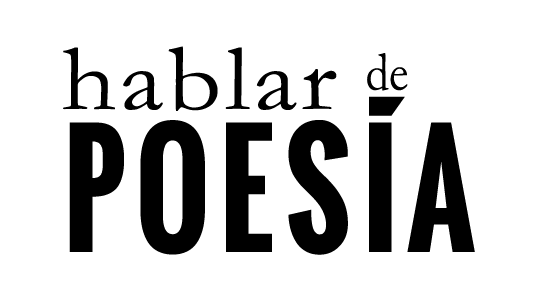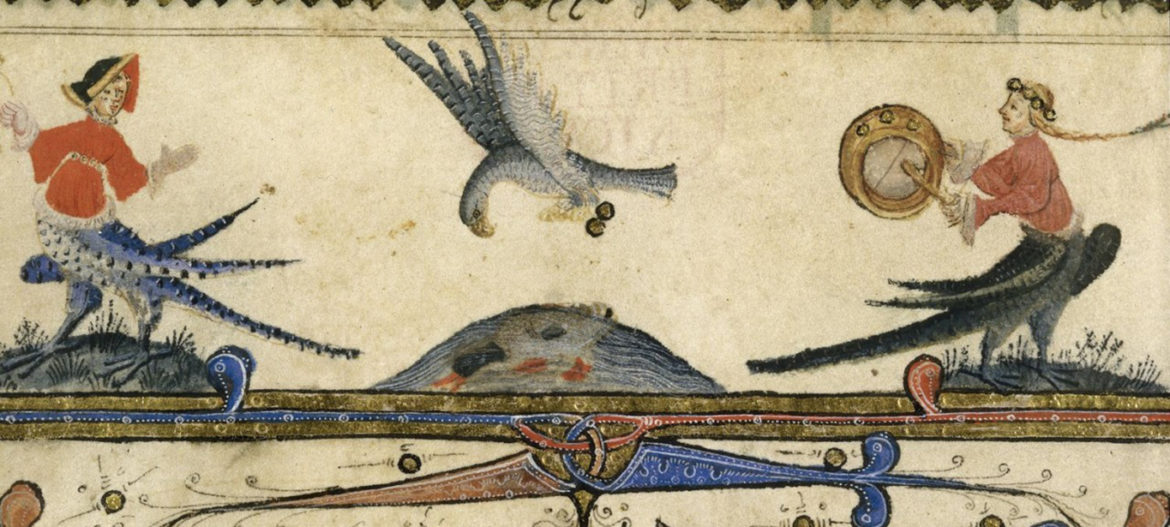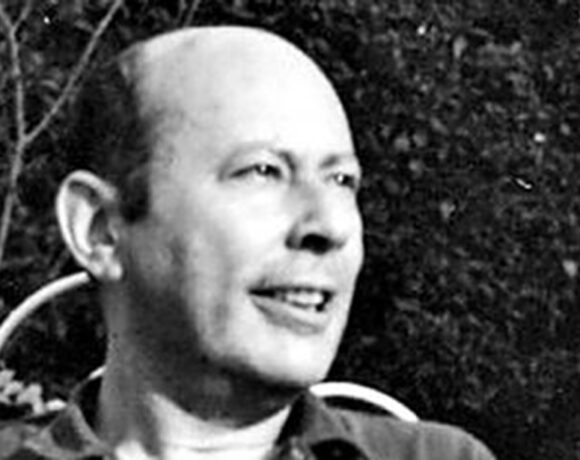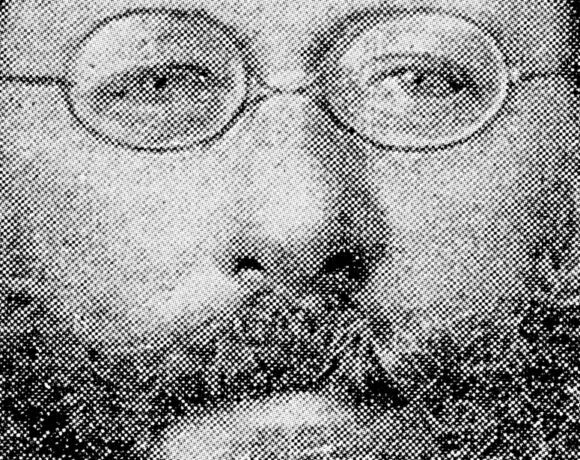Uno de los mejores libros que se publicaron en los últimos años en la Argentina es Baladas inglesas y escocesas, con selección, traducción, prólogo y comentarios de Miguel Ángel Montezanti (EUDEM – Editorial de la Universidad Nacional de Mar del Plata, 2017).
En algún lugar de La diosa blanca Robert Graves dice, medio en broma, medio en serio, que la mejor poesía británica fue escrita por Anon. Esta selección de Montezanti es una excelente puerta de entrada a la inagotable tradición de origen medieval y autor anónimo de las baladas. Compartimos dos, con el comentario.
La tradición de la balada, que en castellano podría acercarse al romance, fue recuperada por los poetas del romanticismo en el siglo diecinueve, pero su persistencia es obvia también en la música popular del siglo veinte. Bob Dylan –nacido Robert Zimmerman– que había elegido identificarse con el poeta galés Dylan Thomas, se leía también en continuidad con esta tradición. Agregamos, al final, “A hard rain’s a-gonna fall”, una de sus canciones más conocidas.
EDWARD (Trad. Miguel Ángel Montezanti)
–¿Por qué de tu espada la sangre chorrea,
Edward, Edward?
¿Por qué de tu espada la sangre chorrea,
y por qué vas tan triste tú, oh?
–Oh, porque por ella mi falcón muriera,
madre, madre,
oh, porque por ella mi falcón muriera,
y ningún otro tenía oh.
–Del falcón la sangre no es tan colorada,
Edward, Edward,
del falcón la sangre no es tan colorada
Yo te lo digo, mi hijo, oh.
–Oh, mi alazán ha muerto por la espada,
madre, madre,
oh, mi alazán ha muerto por la espada,
era el más brioso, el mejor, oh.
–Viejo era el caballo y otros tienes, hijo,
Edward, Edward,
viejo era el caballo y otros tienes, hijo,
otra pena te duele, oh.
–Oh, es que he matado a mi padre querido,
madre, madre,
oh, es que he matado a mi padre querido,
esa pena me duele, oh.
–¿Cuál será el castigo que sufras por eso,
Edward, Edward,
cuál será el castigo que sufras por eso?
Hijo mío, dímelo, oh.
–Será mi destino un bote pequeño,
madre, madre,
será mi destino un bote pequeño
con el que me haré a la mar, oh.
–¿A quién dejarás tus casas y torres,
Edward, Edward?
¿A quién dejarás tus casas y torres,
que son tan lindas de ver, oh?
–Qué queden allí, que se desmoronen,
madre, madre,
que queden allí, que se desmoronen,
porque nunca más estaré aquí, oh.
–¿Y qué han de obtener tus hijos y esposa
Edward, Edward?
¿Y qué han de obtener tus hijos y esposa,
cuando te vayas a la mar, oh?
–La tierra completa, que pidan limosna,
madre, madre,
la tierra completa; que pidan limosna,
porque no los veré más, oh.
–¿Y qué ha de obtener tu madre querida,
Edward, Edward?
¿Y qué ha de obtener tu madre querida?
Hijo mío, dímelo, oh.
–Maldición del diablo por toda la vida,
madre, madre,
maldición del diablo por toda la vida
mal me aconsejaste, oh.
EDWARD
‘Why dois your Brand sae drap wi bluid,
Edward, Edward,
Why dois your Brand sae drap wi bluid,
And whe sae sad gang yee, O?’
‘O I hue killed my jauke sae guid,
Mither, mither,
O I hae killed my hauke sae guid,
And I had nae mair bot hee o’
‘Your haukis bluid was nevir sae reid,
Edward, Edward,
Your haukis bluid was nevir sae reid,
My deir son I tell thee O.’
‘O I hae killd my reid-roan steid,
mither, mither,
O I hae killed my reid-roan steid,
That erst was sae fair and frie O.’
‘Your steid was auld, and ye hae gat mair,
Edward, Edward,
Your steid was auld, and ye hae gat mair,
Sum other yule ye drie O.’
‘O I hae killed my fadir deir,
Mither, mither,
O I hae killed my fader deir,
Alas, adn wae is mee O!’
And thatten penance wul ye drie, for that,
Edward, Edward?
And thatten penance will ye drie for that?
My deir son, now tell me O.’
‘Ille set my deit in yonder boat,
Mither, mither,
Ille set my geit in yonder boat,
And Ille fare ovir the sea O.’
‘And what wul ye doe wi your towirs and your ha,
Edward, Edward?
And what wul ye doe wi your woris and your ha,
That were sae fair to see O?’
‘Ille let tham stand tul they doun fa,
Mither, mither,
Ille let thame stand tul they doun fa,
For here nevir mair maun I bee O.’
‘And what wul ye leive to your bairns and your wife,
Edward, Edward?
And what wul ye leive to your bairns and your wife,
Whan ye gang ovir the sea O?’
‘The warldis room, late them beg trae life,
Mither, mither,
The warldis room, late them beg thrae life,
For tham nevir mair I wul see O.’
‘And what wul ye leive to your ain mither deir,
Edward, Edward,
And what wul ye leive to your ain mither deir?
My deir son, now tell O.’
‘The curse of hell frae me sall ye beir,
Mither, mither,
The curse of hell frae me sall ye beir,
Sic counseils ye gave to me O.’
COMENTARIO. Corresponde a la versión B del número 13 de Child. Se trata de la más conocida de las baladas inglesas, y considerada lo más noble de la especie. Está íntegramente compuesta de diálogo, y el último verso desnuda el suspenso creado a lo largo de las preguntas y respuestas. La balada es un buen ejemplo del procedimiento llamado repetición incremental, a saber, cuando cada uno de los términos de la serie implica algo que cualitativa o cuantitativamente supera lo expresado en el término anterior. La muerte violenta del padre por mano del hijo mal aconsejado por la madre está preparada por la muerte del halcón y del caballo: uno y otro son atributos que pertenecen a la dignidad caballeresca. Al arrepentimiento de Edward, caracterizado por su deseo de hacerse a la mar en un bote pequeño, “sin fondo”, según la versión A, siguen las famosas estrofas testamentarias que han emigrado a otras baladas.

LORD RANDAL (Trad. Miguel Ángel Montezanti)
–Oh, ¿dónde has estado, Lord Randal, mi hijo?
Oh, ¿dónde has estado, gallardo hijo mío?
–Estuve en el bosque; prepara mi lecho,
de cazar exhausto, quisiera el sosiego.
–¿Y qué has encontrado, Lord Randal, mi hijo?
¿Y qué has encontrado, gallardo hijo mío?
–Encontré a mi amada; prepara mi lecho,
de cazar exhausto, quisiera el sosiego.
–¿Qué es lo que te ha dado, Lord Randal, mi hijo?
¿Qué es lo que te ha dado, gallardo hijo mío?
–Anguilas fritadas; prepara mi lecho,
de cazar exhausto, quisiera el sosiego.
–¿Quién tomó tus sobras, Lord Randal, mi hijo?
¿Quién tomó tus sobras, gallardo hijo mío?
–Mis perros y halcones; prepara mi lecho,
de cazar exhausto, quisiera el sosiego.
–¿Y qué ha sido de ellos, Lord Randal, mi hijo?
¿Y qué ha sido de ellos, gallardo hijo mío?
–Todos están muertos; prepara mi lecho,
de cazar exhausto, quisiera el sosiego.
–¡Tomaste el veneno, Lord Randal, mihijo!
¡Tomaste el veneno, gallardo hijo mío!
–Sí, tomé el veneno; prepara mi lecho,
al corazón llega, quisiera el sosiego.
–¿Qué hereda tu madre, Lord Randal, mi hijo?
¿Qué hereda tu madre, gallardo hijo mío?
–Veinticuatro vacas; prepara mi lecho
al corazón llega, quisiera el sosiego.
–¿Qué hereda tu hermana, Lord Randal, mi hijo?
¿Qué hereda tu hermana, gallardo hijo mío?
–El oro y la plata; prepara mi lecho,
al corazón llega, quisiera el sosiego.
–¿Qué hereda tu hermano, Lord Randal, mi hijo?
¿Qué hereda tu hermano, gallardo hijo mío?
–Mis tierras y casas; prepara mi lecho,
al corazón llega, quisiera el sosiego.
–Qué hereda tu amada, Lord Randal, mi hijo?
¿Qué hereda tu amada, gallardo hijo mío?
–Fuego del infierno; prepara mi lecho,
al corazón llega, quisiera el sosiego.
LORD RANDAL
‘O where ha you been, Lord Randal, my son?
And where ha you been, my handsome young man?
‘I ha been at the greenwood; mother mak my bed soon;
For I’m wearied wi hunting, and fain wad lie down.’
‘An wha met ye there, Lord Randal, my son?
An wha met you there, my handsome young man?’
‘O I met wi my true-love; mother, mak my bed soon,
For I’m wearied wi huntin, and fain wad lie down.’
‘And what did she give you, Lord Randal, my son?
And what did she give you, my handsome young man?
‘Eels fried in a pan; mother, mak my bed son,
For I’m wearied wi huntin, and fain wad lie down.’
‘And wha gat your leaving, Lord Randal, my son?
And wha gat your leaving, my handsom young man?’
‘My hawks and my hounds; mother, mal my bed soon,
For I’m weaned wi hunting, and fain wad lie down.’
‘And what becam of them, Lord Randal, my son?
And what becam of them, my handsome young man?’
‘They stretched their legs out and died; mother, mak my bed soon,
For I’m wearied wi hunting, and fain wad lie down.’
‘O I fear you are posoned, Lord Randal, my son!
I fear you are poisoned, my handsome young man!’
‘O yes, I am poisoned; mother, make my bed soon,
For I’m sick at the heart, and I fain wad lie down.’
‘What d’ye leave to your mother, Lord Randal, my son?
What d’ue leave to your mother, my handsome young man?
‘Four and twenty milk kye; mother, mak my bed soon.
For I’m sick at the heaert, and I fain wad lie down.’
‘What d’ye leave to your sister, Lord Randal, my son?
What d’ye leave to your sister, my handsome young man?’
‘My gold and my silver; mother, mak my bed soon,
For I’m sick at the heart, and I fain wad lie down.’
‘What d’ye leave to your brother, Lord Randal, my son?
What d’ye leave to your brother, my handsome young man?
‘My houses and muy lands; mother, mak my bed soon,
For I’m sick at the heart, and I fain wad lie down.’
‘What d’ye leave to your true-love, Lord Randal, my son?
What d’ye leave to your true-love, my handsome young man?
‘I leave her hell and fire; mother, mak my bed soon,
For I’m sick at the heart, and I fain wad lie down.’
COMENTARIO. Entre las versiones que agrupa Child bajo el número 12, corresponde a la A. Disputa con “Edward” el cetro del genio baladístico. El tema del envenenamiento del novio es conocido; pero en esta balada resalta la falta de patetismo, y la descripción casi objetiva de lo que ocurre. El bosque, igual que en “Edward” y que en otras baladas, aparece como ámbito peligroso y amenazante. Se observa el uso de la repetición incremental y de las estrofas testamentarias.
Por último, el tema de Bob Dylan.
VA A SER FUERTE LA LLUVIA QUE CAIGA
¿Oh, dónde has estado, mi hijo de ojos azules?
¿Oh dónde has estado, mi hijo querido?
Anduve errante por la niebla de doce montañas
Caminé y me arrastré por seis rutas tortuosas
Llegué hasta el centro de siete bosques desolados
Estuve delante de doce océanos muertos
Entré diez mil quilómetros en la boca de un cementerio
Y va a ser fuerte, va a ser fuerte, va a ser fuerte, va a ser fuerte,
va ser fuerte la lluvia que caiga.
¿Oh, qué es lo que has visto mi hijo de ojos azules?
¿Oh, qué es lo que has visto mi hijo querido?
Vi a un recién nacido con lobos salvajes que lo rodeaban
Vi una ruta de diamantes sin nadie que la usara
Vi una rama negra de la que goteaba sangre
Vi una sala llena de hombres con martillos que sangraban
Vi una escalera blanca toda cubierta de agua
Vi diez mil habladores pero sus lenguas estaban rotas
Vi pistolas y espadas afiladas en las manos de jovencitos
Y va a ser fuerte, va a ser fuerte, va a ser fuerte, va a ser fuerte,
va ser fuerte la lluvia que caiga.
¿Y qué has escuchado, mi hijo de ojos azules?
¿Y qué has escuchado, mi hijo querido?
Escuché el sonido del trueno rugiendo una advertencia
Escuché el rugido de una ola que podría inundar todo el mundo
Escuché alguien con hambre, escuché a muchos riéndose
Escuché la canción de un poeta que murió en una zanja
Escuché el sonido de un payaso que lloraba en la calle
Y va a ser fuerte, va a ser fuerte, va a ser fuerte, va a ser fuerte,
va ser fuerte la lluvia que caiga.
¿Oh, con quién te has encontrado, mi hijo de ojos azules?
¿Con quién te has encontrado, mi hijo querido?
Me encontré con un niño al lado de un pony muerto
Me encontré con un hombre blanco que paseaba a un perro negro
Me encontré a una mujer joven cuyo cuerpo estaba ardiendo
Me encontré con una chica, me regaló un arcoíris
Me encontré con un hombre herido de amor
Y encontré otro herido de odio
Y va a ser fuerte, va a ser fuerte, va a ser fuerte, va a ser fuerte,
va ser fuerte la lluvia que caiga.
¿Oh, y qué es lo que harás, mi hijo de ojos azules?
¿Oh, y qué es lo que harás, mi hijo querido?
Voy a partir de nuevo antes de que empiece a llover
Voy a ir a lo profundo del más profundo y negro bosque
Donde de la gente es mucha y sus manos están vacías
Donde el veneno está inundando sus aguas
Donde la casa del valle se toca con la cárcel ruinosa
Donde la cara del verdugo está siempre escondida
Donde el hambre es feo, donde las almas se olvidan
Donde negro es el color, y ninguno es el número
Y voy a decirlo y pensarlo y hablarlo y respirarlo
Y proyectarlo desde la montaña para que todos puedan verlo
Después voy a estar de pie sobre el mar hasta que empiece a hundirme
Pero voy a conocer bien mi canción antes de empezar a cantarla
Y va a ser fuerte, va a ser fuerte, va a ser fuerte, va a ser fuerte,
va ser fuerte la lluvia que caiga.
IT´S A HARD RAIN´S A-GONNA FALL
Oh, where have you been, my blue-eyed son?
Oh, where have you been, my darling young one?
I’ve stumbled on the side of twelve misty mountains
I’ve walked and I’ve crawled on six crooked highways
I’ve stepped in the middle of seven sad forests
I’ve been out in front of a dozen dead oceans
I’ve been ten thousand miles in the mouth of a graveyard
And it’s a hard, and it’s a hard, it’s a hard, and it’s a hard
And it’s a hard rain’s a-gonna fall
Oh, what did you see, my blue-eyed son?
Oh, what did you see, my darling young one?
I saw a newborn baby with wild wolves all around it
I saw a highway of diamonds with nobody on it
I saw a black branch with blood that kept drippin’
I saw a room full of men with their hammers a-bleedin’
I saw a white ladder all covered with water
I saw ten thousand talkers whose tongues were all broken
I saw guns and sharp swords in the hands of young children
And it’s a hard, and it’s a hard, it’s a hard, it’s a hard
And it’s a hard rain’s a-gonna fall
And what did you hear, my blue-eyed son?
And what did you hear, my darling young one?
I heard the sound of a thunder, it roared out a warnin’
Heard the roar of a wave that could drown the whole world
Heard one person starve, I heard many people laughin’
Heard the song of a poet who died in the gutter
Heard the sound of a clown who cried in the alley
And it’s a hard, and it’s a hard, it’s a hard, it’s a hard
And it’s a hard rain’s a-gonna fall
Oh, who did you meet, my blue-eyed son?
Who did you meet, my darling young one?
I met a young child beside a dead pony
I met a white man who walked a black dog
I met a young woman whose body was burning
I met a young girl, she gave me a rainbow
I met one man who was wounded in love
I met another man who was wounded with hatred
And it’s a hard, it’s a hard, it’s a hard, it’s a hard
It’s a hard rain’s a-gonna fall
Oh, what’ll you do now, my blue-eyed son?
Oh, what’ll you do now, my darling young one?
I’m a-goin’ back out ‘fore the rain starts a-fallin’
I’ll walk to the depths of the deepest black forest
Where the people are many and their hands are all empty
Where the pellets of poison are flooding their waters
Where the home in the valley meets the damp dirty prison
Where the executioner’s face is always well-hidden
Where hunger is ugly, where souls are forgotten
Where black is the color, where none is the number
And I’ll tell it and think it and speak it and breathe it
And reflect it from the mountain so all souls can see it
Then I’ll stand on the ocean until I start sinkin’
But I’ll know my song well before I start singin’
And it’s a hard, it’s a hard, it’s a hard, it’s a hard
It’s a hard rain’s a-gonna fall






